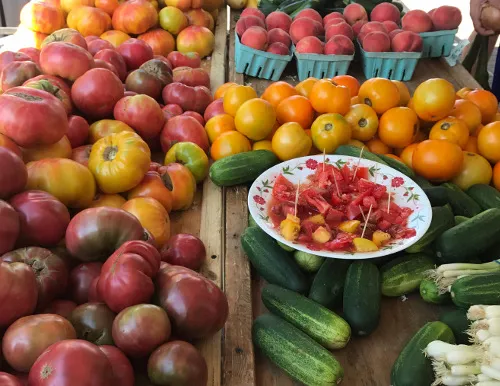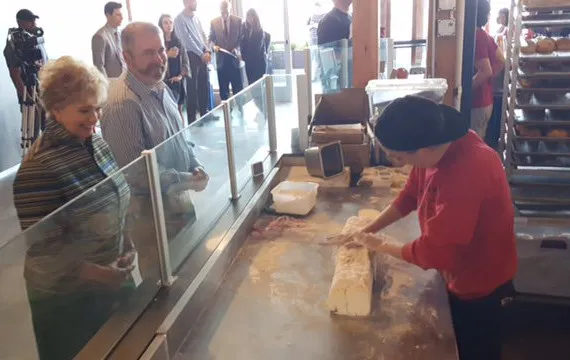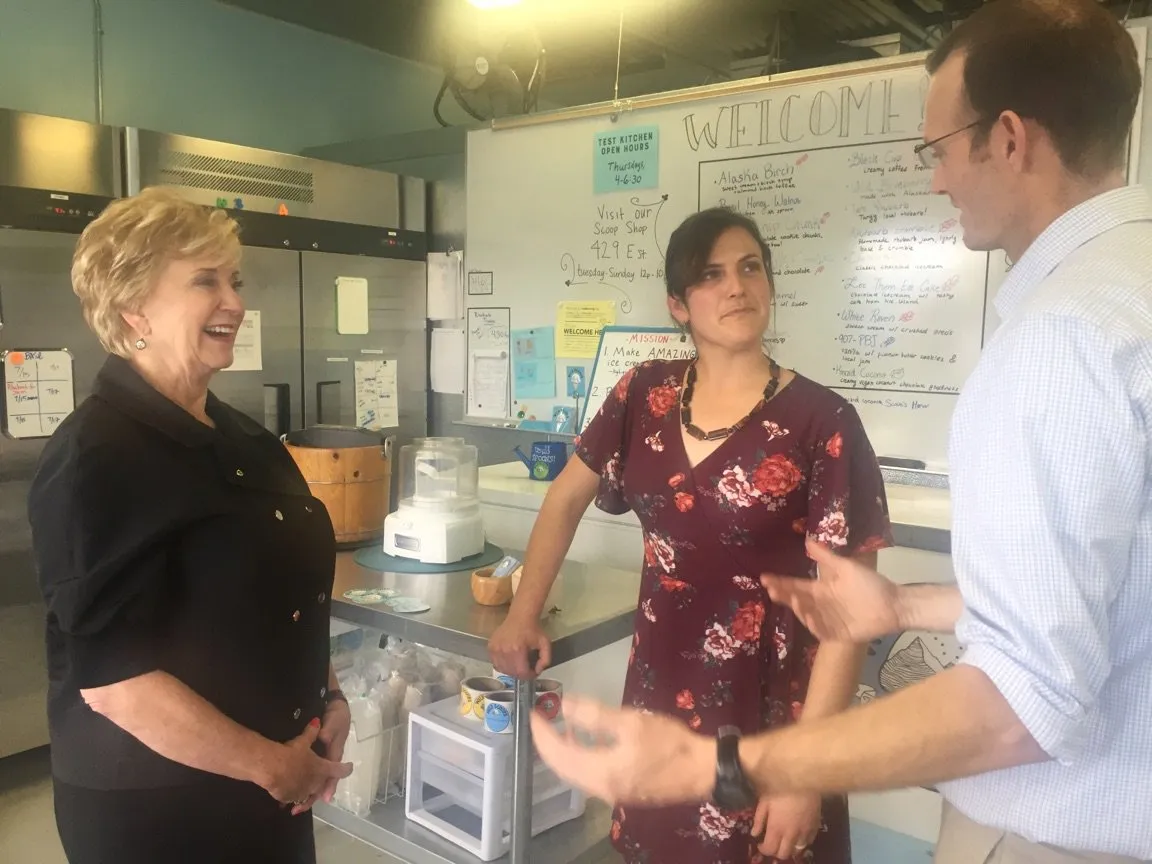
Who doesn’t love the freshness of vine-ripened tomatoes, just-picked cucumbers or corn bursting with summer sweetness? This time of year, there’s likely a bounty at your local farmer’s market.
U.S. Secretary of Agriculture Sonny Perdue has designated this week as National Farmers Market Week, encouraging people to visit the markets and meet – and buy from – the farmers themselves. Secretary Perdue’s proclamation notes that farmers markets contribute about $9 billion to the national economy each year. The USDA’s National Farmers Market Directory can help you find one near you.
Farmers markets have become a showcase both for the local harvest – and for budding entrepreneurs. As I have visited small businesses across the country during my “SBA Ignite Tour, ” I have noticed that many brick-and-mortar stores got their starts at farmers markets. And the SBA has helped them sprout.

Art Stone, owner of Honest Biscuits in Seattle, actually started making biscuits with his grandmother at just four years old. As an adult, he started selling homemade biscuits at farmers markets and built a business along the way – he now has eight employees and a permanent spot at Seattle’s famed Pike Place Market.
Elissa Brown had been making ice cream as a hobby in North Carolina. When she moved to Anchorage, Alaska, she noticed there weren’t any shops selling handmade ice cream and recognized a business opportunity. She started selling at local farmers markets in 2015 and now, just two years later, Wild Scoops has two retail locations and 20 employees.

Sarah Curtis-Fawley started making Australian meat pies for her husband, Chris Powell, when they moved to the U.S. from his Aussie homeland. In 2009, they launched Pacific Pie Company, selling the savory pies at farmers markets in Portland, Oregon. In 2010, they opened a small café – and just a year later, expanded to a full-service restaurant with a second location opening in 2013. They now have 36 employees and continue to support their market roots by sourcing ingredients directly from local farmers.
The SBA has helped cultivate these businesses. Art Stone and Sarah Curtis-Fawley and Chris Powell got counseling and mentorship through the SBA’s Emerging Leaders Initiative. Elissa Brown got counseling about market research, insurance and the food industry from a local Small Business Development Center. She also got an SBA Community Advantage Loan to help buy kitchen equipment.
Farmers markets are a natural spot for a business to take root. And I imagine growing a business isn’t all that different from growing a crop. Planting a seed is only the first step. It must be tended with expertise and care – with fertile soil, the right tools, adequate water and sunlight, the investment of fertilizer, and proper management of risks like weeds and pests. Similarly, a business starts with an idea that needs a fertile landscape to take root. Is the market receptive to the product or service? It needs capital – often referred to as “seed money” (coincidence? hmmm!). A business also needs the right raw materials, investment and management, with consideration of the risks as well as the rewards.
As farmers markets increasingly offer artisanal products as well as produce, shoppers may discover the next big thing – and help an entrepreneur testing a new concept or turning a hobby into a viable business. The SBA and its resource partners can help aspiring entrepreneurs lay the groundwork.

